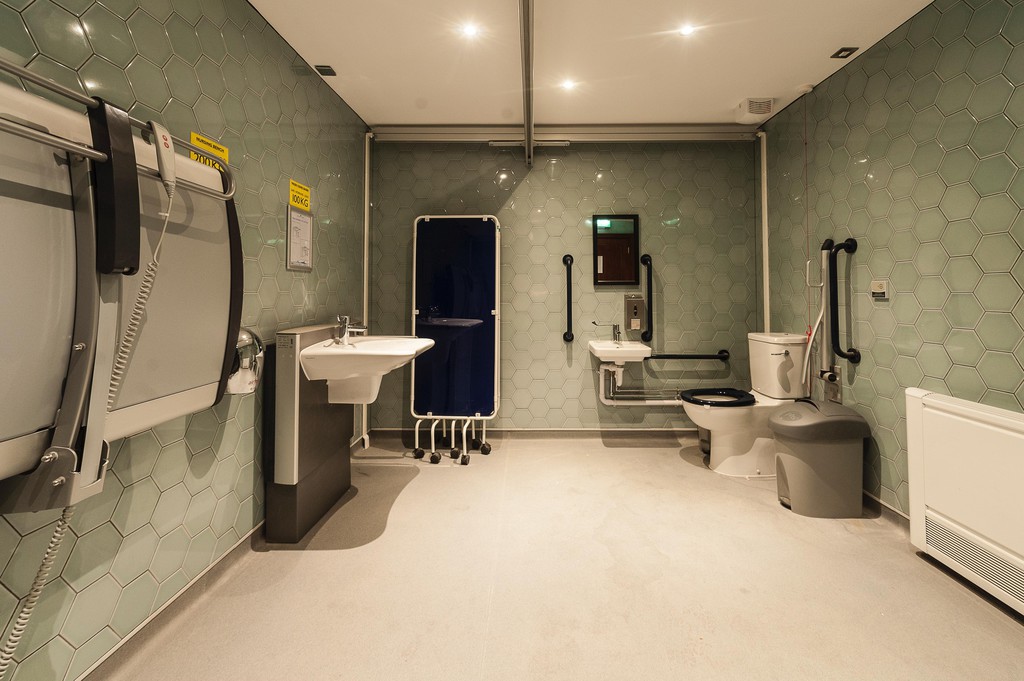

|
Chris Shaw
Editor |
| Home> | WASHROOM HYGIENE | >General Washroom Hygiene | >Don't bar 20% of potential customers |
Don't bar 20% of potential customers
16 May 2019
A new survey has highlighted ways for pubs and bars to increase customers - by welcoming disabled people. The survey, by Leonard Cheshire, reinforces similar findings from a survey undertaken by Britain’s leading disabled toilet solutions provider, Closomat.

Leonard Cheshire’s research revealed that 86% of people face difficulties accessing pubs and bars with issues of layout, toilets, bar heights and step-free access being the main sticking physical barriers.
Husna Mortuza, Leonard Cheshire’s head of policy and campaigns, said: “Pubs are a great way to get out and avoid social isolation. If pubs and bars take note, they also stand a chance to cash in on the £249 billion that the disabled person market - the ‘purple pound’- is worth.”
Closomat’s (Total Hygiene) research showed 96% of respondents decided where to go based on toilet provision and suitability; 69% of the respondents cited pubs, bars and restaurants as places they would like to see improved ‘disabled toilet’ provision - specifically more space and additional equipment (a hoist, adult-sized changing bench) aka a Changing Places toilet.
Currently, of the major pub brands, only JD Wetherspoons provides Changing Places. The facilities are proven to bring customers in, as Rebecca White manager of JD Wetherspoons’ Velvet Coaster in Blackpool, the first of the chain’s outlets to open a Changing Places, testifies: “It’s used daily, definitely worth putting in. Customers tell us they came because they knew we have the Changing Places.”
Robin Tuffley, Closomat marketing manager, added: “It is worth noting that toilets were specifically mentioned in Leonard Cheshire’s survey as an issue and a barrier for disabled people in their ability to use pubs and bars. Campaigners for Changing Places toilets tell us providing suitable toilet facilities opens the door not just to them, but their friends and families too. The investment in making a venue accessible is therefore potentially quickly recoupled by the increase in customers. Bear in mind, registered disabled people represent 20% of the UK population; disabled people also say they tend to stay longer, and spend more, in an accessible venue.”
Under Building Regulations and British Standards (BS8300:2018), a Changing Places should be provided in any facilities to which numbers of the public have access, and/or spend a length of time.
Closomat has become the ‘go to’ company for Changing Places. It was the original sponsor of the Changing Places campaign a decade ago; its website www.clos-o-mat.com is an exemplar resource for campaigners, providers and specifiers alike, with a raft of support information including white papers, calling cards, CAD blocks, video and case studies.
The company can provide an in-house, ‘one- stop-shop’ complete package for ‘away from home’ assisted accessible toilet facilities, including Changing Places and Space to Change, from design and commissioning, through to project management, supply and installation. It is also unique in being able to additionally provide subsequent maintenance and repair.
- Community centre installs Changing Places toilet
- Pub wins UK's best accessible loo
- Sanitary best practice
- Ten tips to give customers a useable & accessible toilet
- Call to improve public toilet provision
- Hygienic shower toilets
- Sanitary best practice
- Best practice for accessible toilet facilities
- Facilities to give dignity
- Changing places at your service





















